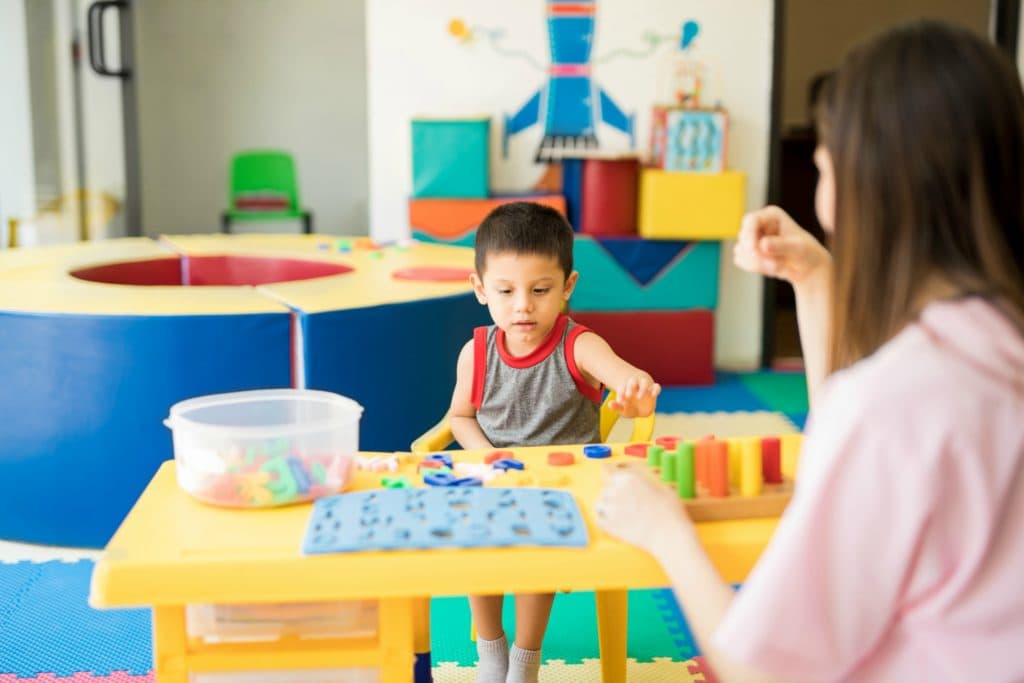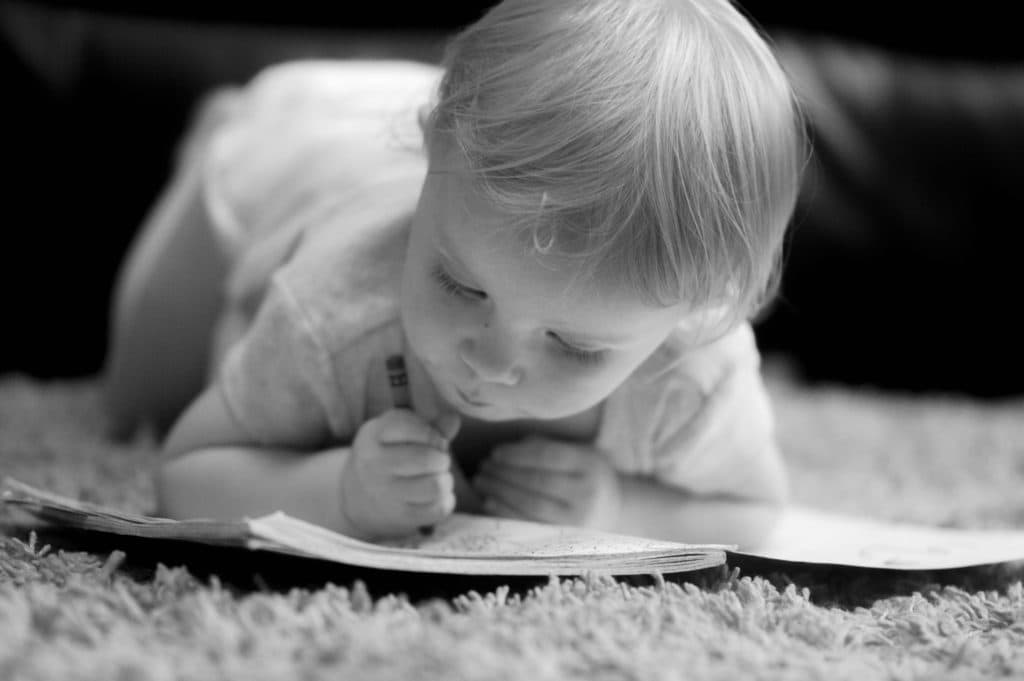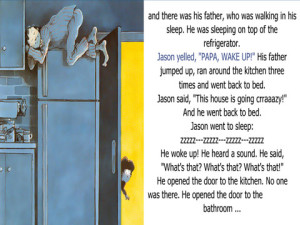If your infant or toddler isn’t speaking a lot or seems to have a language delay, these six…
If your infant or toddler isn’t speaking a lot or seems to have a language delay, these six ways to promote language development work and are speech therapist approved. Find practical everyday strategies that will foster language development now.

The silence from my son from infancy through to after his first birthday was deafening.
My daughter is only fifteen months older than he is. As a result, I had just witnessed very typical language development unfold. In fact, it could be argued now that her speech was even advanced. Hindsight, of course, being 20/20.
When my son was about six-months-old and not babbling, I chalked it up to gender or individual differences between him and his sister.
At a year, when there were next-to-no word approximations, I started to wonder…
Then, when we attended a health fair when he was fifteen months and a child development specialist recommended my son be assessed, I was crestfallen.

While I knew there was context to my son’s lack of words, he had a very verbal sister close in age and there are two languages in our home, it broke my heart to have him treated differently and not seen as everything he was versus what he was not yet doing.
Today, my son’s every word (as long as it isn’t ear-piercingly shrill) melts my heart and gives me great joy. At just past two, he regularly strings four words together and always punctuates his sentences with the person’s name he’s addressing. “More milk please, Mama?” “Oh thank you, Mama,” are classic examples of his airy, boy-ish phrases. While I’m not a speech pathologist or speech therapist, I definitely have found some incredible resources.
What’s unique in our family is that in being bilingual, we have helped scaffold our children’s language development first in English and now, are re-applying those same techniques to solidify their French. As a result of my experiences, I have been able to solidify some techniques that work quite well. Here are six very effective ways to promote language development in toddlers.

In instances where they are focusing on a task (i.e. painting, building a tower, digging sand) narrate their every move. “Oh, you chose purple paint. Dip, dip your brush. Up, down, up-down. Now, you’re painting from side to side.”
Related reading: Effective Strategies to Promote Language Development in Infants
Remember, in situations that are more dyadic than watching your child do something, it takes two to talk. Ask and then wait. At first, you’ll be waiting for sounds, eventually word approximations, and in time, actual words. In giving them prompts and waiting for their response with an eager, open facial expression you are cuing the child that they need to take a turn. This gives young children the opportunity to strengthen the fine motor muscles needed for speech. As parents, we naturally and habitually anticipate our children’s needs by, for instance, giving them milk when they seem whiny, bringing a toy down that they’re reaching for. In doing so, we are actually doing a disservice to their language development (especially when their language isn’t coming along quickly).
Oh and read some more. Children’s lit is filled with repetitive phrases, rhymes, patterns, and is rich with new vocabulary. “[T]he more words that are in a child’s language world, the more words they will learn, and the stronger their language skills are…” Dr. Pamela High of the American Academy of Pediatrics (read more here).
Starting with simple questions like, “Where’s the boy?” eventually moving to “What’s that?” (pointing to the boy) and then, “We don’t sleep on refrigerators! Where do we sleep?” Any lines that repeat or rhyme are great to omit a word from because they are the most obvious for your child to chime in with. For instance, “What’s that? What’s that?! WHAT’S ____!?!”

At bath time, put them in the bath clothed, without water. At snack time, give them an empty plate. Or, when dressing them put their pants on their head. Then act like everything is normal and wait for any sort of expression to come. Of course, make this fun and silly.
Related reading: How to Promote Language Development While Reading
Singing develops phonological awareness, facilitates the retention of new vocabulary by means of repetition, and also increases retention (see an entire article on this here along with some great songs to help with language too).
When we started holding space for our son to speak more, his language started coming along. Soon, not only was he speaking, we were also able to hear his thoughts and ideas. He was less frustrated and we had the gift of getting to know our son more.
Photo by Josh Applegate on Unsplash
Photo by Drew Rae from Pexels
Ask any parent who has watched a two‑year‑old “fail” to hear the call to put on shoes—only to…
Toddlers can be confusing, to say the least. One moment they’re clinging to your leg like a baby…
Affection wasn’t really a thing in my childhood home. My parents were good providers, but hugs, “I love…